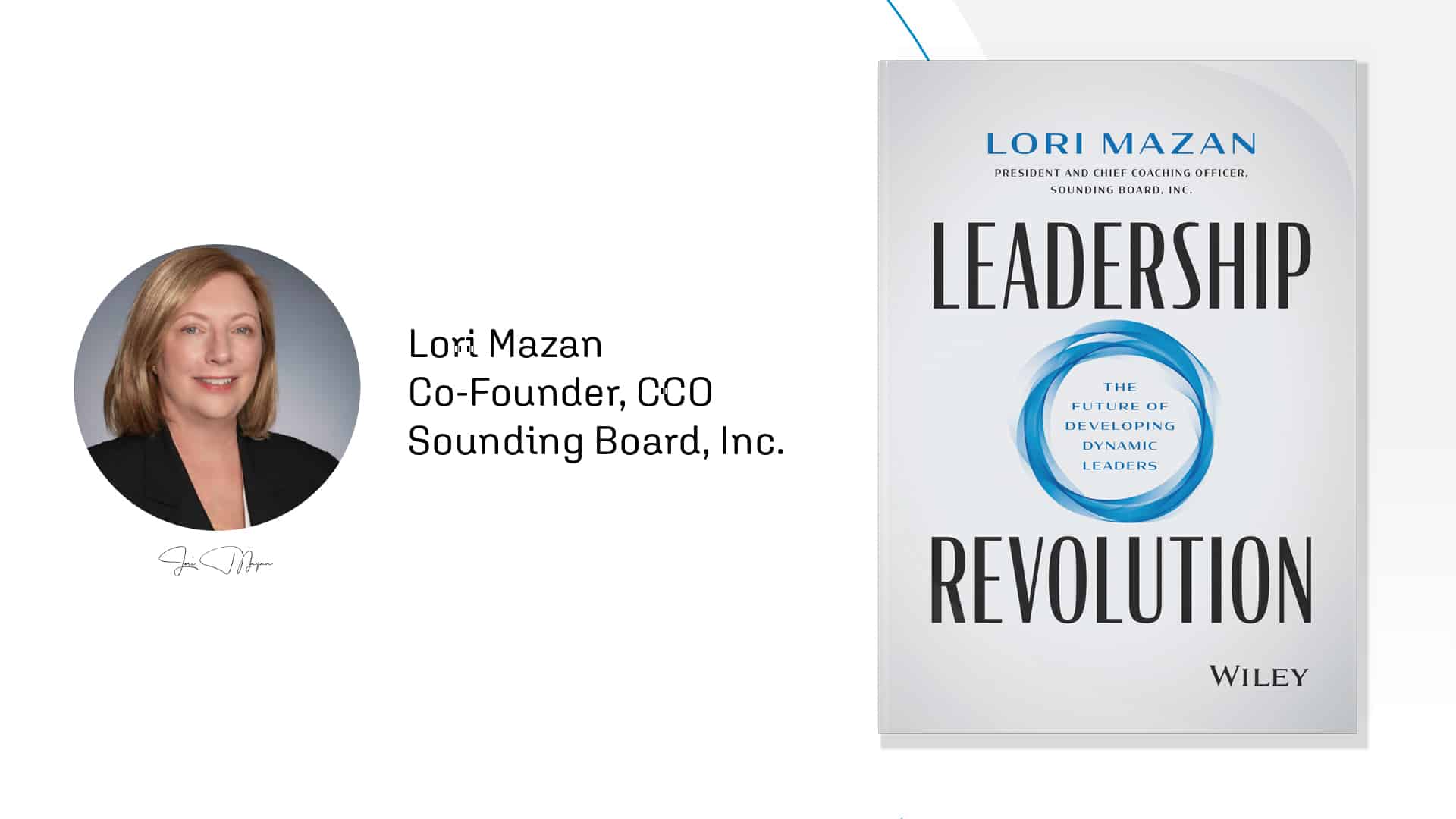Sounding Board Co-founder, Chief Coaching Officer, and President Lori Mazan has announced the upcoming release of her book Leadership Revolution: The Future of Developing Dynamic Leaders. We asked Lori for some insights into what learning and talent development professionals, managers, and executives can expect from her book.
Q: You are anything but the 'typical' portrait of a leader. How has that shaped your perspective on leadership development?
Lori:
It’s really funny that people think I’m not a typical leader. I actually take that as a compliment. How has that changed my perspective on leader development? It actually hasn’t. I think the best, most exceptional leaders are not the typical leaders. The typical leaders are in the middle of the bell curve and the exceptional leaders are actually on the lower end. Being an atypical leader might be the best thing you can do. You’re not being like everybody else. You’re blending the standard skills and capabilities with your own unique capacity and interests, personality and style, and approach to make a very unique blend of leadership. That is the exact type of leader people want to follow.
Q: What was the most challenging aspect of writing Leadership Revolution?
Lori:
There are lots of challenging parts to writing a book. The most challenging part for me was really trying to get all of my ideas down on paper in a way that somebody reading the book could actually understand. Leadership is a complex subject. I have a lot of ideas around it, and I’m more of a verbal processor. So, trying to capture all of the nuances of these ideas in writing, was really quite a bit of work for me. I got better at it as time went on. I think some of the later chapters might be better than the earlier chapters from that point of view. It was definitely a learning process.
Q: What has been your greatest challenge as a leader?
Lori:
My greatest challenge as a leader has been to translate my visionary big-picture thinking into a more linear step-by-step approach. I can think way out ahead and, in a way, almost see the future. But it’s hard for people to just jump out there with me. If I’m at step 10, they need to understand what they need to do on step one to get to step two, to get to step three, to eventually get to step 10.
Q: How can leaders pin down what it is they really want?
Lori:
Pinning down what you really want is an iterative process. I have not come across very many people who know from the start what they want. They actually think they know what they want, but when they get it they’re like, “Hey, this wasn’t what I wanted.” So it’s a constant reexamination around what you think you want and what you actually want. Having a feedback loop around that for yourself over and over and over. I actually have a lot of hints about this at the end of the third chapter because it’s something that comes up with every single coaching client, every leader, every person.
Q: As a leader, have you ever faced a time when you had to question what it was that you really wanted?
Lori:
I actually question it every day. Is this what I really want? It’s an opportunity to really self-assess where I am and also recommit to what I want. It’s been a challenging process for me to get clear on what I want because I grew up in an environment where I was told that what I want really isn’t important; doing what other people want is what was important. So it’s been a process for me. I have one example in the book. I didn’t think I wanted to be in the startup environment. I had been working independently for a long time and I had an opportunity to join a startup. And I said no about five or six times before I said yes. But at one point after saying yes, I asked myself whether this was what I really wanted. And I was both surprised and pleased that I actually loved being in the startup environment. Sometimes what you really want might even be surprising to yourself.












